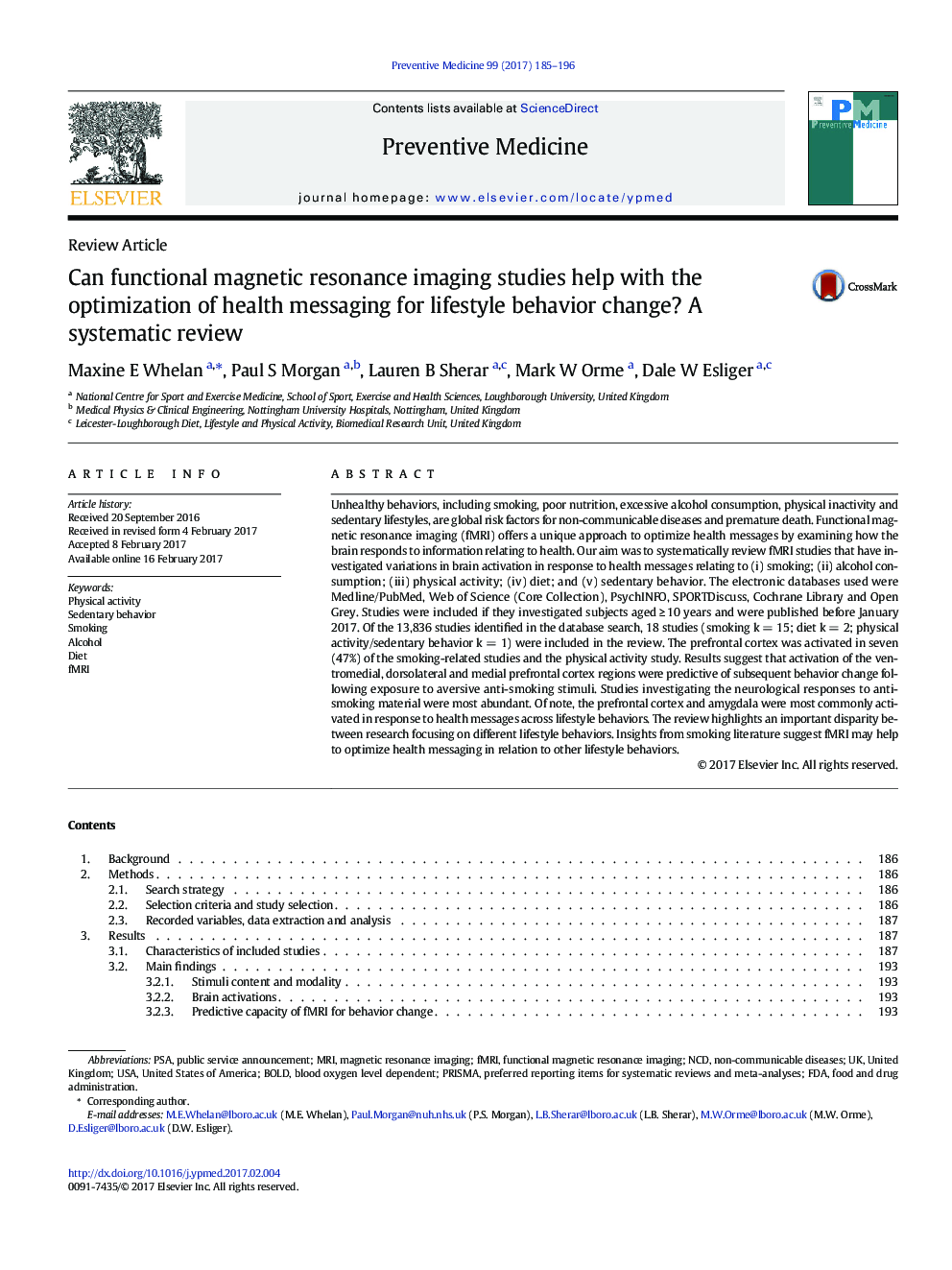| کد مقاله | کد نشریه | سال انتشار | مقاله انگلیسی | نسخه تمام متن |
|---|---|---|---|---|
| 5635652 | 1581615 | 2017 | 12 صفحه PDF | دانلود رایگان |
- Functional MRI offers a unique insight into how people respond to health messages.
- To date, much of the literature has examined smoking-related health messages.
- Messages activating the ventromedial prefrontal cortex predict smoking cessation.
- Further stronger, causational research on all lifestyle behaviors is needed.
Unhealthy behaviors, including smoking, poor nutrition, excessive alcohol consumption, physical inactivity and sedentary lifestyles, are global risk factors for non-communicable diseases and premature death. Functional magnetic resonance imaging (fMRI) offers a unique approach to optimize health messages by examining how the brain responds to information relating to health. Our aim was to systematically review fMRI studies that have investigated variations in brain activation in response to health messages relating to (i) smoking; (ii) alcohol consumption; (iii) physical activity; (iv) diet; and (v) sedentary behavior. The electronic databases used were Medline/PubMed, Web of Science (Core Collection), PsychINFO, SPORTDiscuss, Cochrane Library and Open Grey. Studies were included if they investigated subjects aged â¥Â 10 years and were published before January 2017. Of the 13,836 studies identified in the database search, 18 studies (smoking k = 15; diet k = 2; physical activity/sedentary behavior k = 1) were included in the review. The prefrontal cortex was activated in seven (47%) of the smoking-related studies and the physical activity study. Results suggest that activation of the ventromedial, dorsolateral and medial prefrontal cortex regions were predictive of subsequent behavior change following exposure to aversive anti-smoking stimuli. Studies investigating the neurological responses to anti-smoking material were most abundant. Of note, the prefrontal cortex and amygdala were most commonly activated in response to health messages across lifestyle behaviors. The review highlights an important disparity between research focusing on different lifestyle behaviors. Insights from smoking literature suggest fMRI may help to optimize health messaging in relation to other lifestyle behaviors.
Journal: Preventive Medicine - Volume 99, June 2017, Pages 185-196
